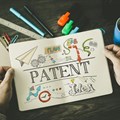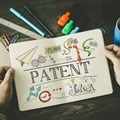As previously discussed, the Patents Act states that the following is not patentable:
- a discovery;
- a scientific theory;
- a mathematical method;
- a literary, dramatic, musical, or artistic work, or any other aesthetic creation;
- a scheme, rule, or method for performing a mental act, playing a game, or doing business;
- a program for a computer;
- the presentation of information;
- inventions that encourage offensive or immoral behaviour;
- plant and animal varieties;
- methods of medical treatment;
- inventions contrary to natural laws;
- inventions contrary to the law; and
- certain nuclear energy and materials inventions.
1. A program for a computer
A program for a computer typically refers to the written source code of the program or a method of carrying out steps on the computer, and the Copyright Act protects the source code. For example, written source code for Microsoft Windows, Google search engine, and Apple iTunes are unpatentable.
A program for a computer that involves a physical object or provides a technical effect when run on a computer, such as robotic bees, surgical robots, global positioning system (GPS), or Bluetooth inventions, are patentable.
2. The presentation of information
A presentation of information relates to conveying information, either written or verbal. This form of intellectual property is protected by the Copyright Act. For example, a set of written instructions to play a game, a PowerPoint presentation, and user manuals are unpatentable.
Even though the presentation of information itself is not patentable, an invention having a technical effect that presents the information is patentable. For example, a virtual reality generator for displaying information, 16K display resolution, or 3D display.
3. Inventions that encourage offensive or immoral behaviour
The Patents Act provides that a patent shall not be granted for an invention, the publication or exploitation of which would be generally expected to encourage offensive or immoral behaviour.
The Registrar has a discretion to refuse a patent application if it appears to him/her that the invention could be used to encourage offensive or immoral behaviour, irrespective if it meets the patentability requirements. For example, instruments for torture.
The concept of morality is hard to define, and it will vary over time, and between societies. For example, in vitro fertilisation and heart transplants were initially considered immoral when they were first developed.
Erin Hannah, James Scott, Silke Trommer & Sophie Harman 13 May 2021
4. Variety of animal or plant or any essentially biological process for the production thereof
The Patents Act provides that a patent shall not be granted for an invention for any variety of animal or plant or any essentially biological process for the production of animals or plants, not being a micro-biological process or the product of such a process.
The biological process for the production of animals or plants refers to processes that would occur naturally with no technical interference, such as the method of cross-breeding or selective breeding of plants or animals.
A micro-biological process refers to the technical interference by modification on a micro-level. A micro-biological process and its products are patentable. For example, a genetically modified plant is patentable.
5. Method of treatment of the human or animal body
An invention of a method of treatment of the human or animal body by surgery or therapy or of diagnosis practised on the human or animal body is not patentable. The rationale of the exclusion is not to hinder a doctor or veterinarian from treating patients or animals due to fear of patent infringement.
The Patents Act also provides that an invention consisting of a substance or composition for use in a method of treatment of the human or animal body by surgery or therapy or of diagnosis practised on the human or animal body can be patentable, provided that the use of the substance or composition is novel and inventive. Hence protection for the use of a known substance or composition is patentable.
6. Inventions contrary to natural law
The Patents Act provides that the Registrar has the power to refuse an invention if it is frivolous on the ground that it claims as an invention obviously contrary to well established natural laws. Examples are a perpetual motion machine, and a machine having no input but an output.
Inventions that fall within this category are not patentable.
7. Inventions contrary to the law
The Patents Act provides that the Registrar has the power to refuse an invention that is contrary to the law. Examples are the process for cloning humans and genetically modifying human embryos to include or remove a gene associated with a disease.
Inventions that fall within this category are not patentable.
8. Nuclear Energy and material inventions
The Patents Act provides that the Registrar has the power to refuse an invention relating to the production or use of nuclear energy or to the production, processing, or use of nuclear material or restricted matter as defined in section 1 of the Nuclear Energy Act, 1999.
This relates to inventions that will affect the national security of South Africa or goes against the Nuclear Non-Proliferation Treaty or the Safeguards Agreement or in terms of any other agreement of that kind between South Africa and any other state or any international or multinational nuclear agency or institution. Examples are nuclear material for weapons, and nuclear bombs.
Conclusion
From the above we can see that, on the one hand, the Patents Act has a long list of exclusions to patentability, but on the other hand, there are caveats to most of the exclusions. An invention needs to be thoroughly assessed to better understand its unique and inventive features. It may well be possible to obtain patent protection for an invention that, at a first glance, appears not to be patentable.
If you are interested in pursuing patent protection for an invention that may fall within one of the exclusions above, consider contacting a patent attorney who can assist.


































